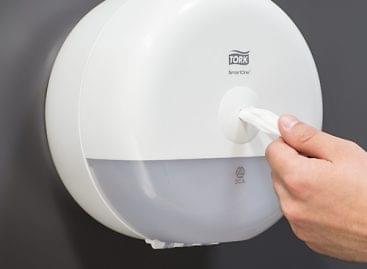The EP adopted a decree on the reduction of pollution from industry and large livestock farms
Wednesday’s plenary session of the European Parliament adopted the agreement already concluded with the member states on the review of the directive on industrial emissions, and the new regulation on the industrial emissions portal.

(Photo: Pixabay)
The new rules make it mandatory to define the strictest available emission levels in the affected sectors. Environmental performance targets for water consumption become mandatory. The targets for waste, resource efficiency, energy efficiency and raw material use will be within a range, and for new techniques they will be indicative. The revised directive now also covers industrial facilities extracting raw materials and large facilities producing batteries – read the board’s press release. The co-legislators also agreed to extend the measures of the Industrial Emissions Directive to pig farms with more than 350 animals. However, farms that keep pigs outdoors for a significant period of time in an extensive or organic manner are not included. In the case of poultry, the directive applies to holdings with more than 300 laying hens or 280 broilers. In the case of farms that keep both pigs and poultry, this limit will be 380 units.
The Commission will assess at the end of 2026 whether further measures are needed in livestock, including emissions from cattle farming, and a reciprocity clause to ensure that non-EU producers export to the EU fulfill requirements similar to EU rules.
The European Parliament also voted to transform the European Pollutant Emissions and Transport Register into an EU industrial emissions portal where citizens can access data on all EU permits and local polluting activities. In the case of the most serious violations, companies that do not comply with the regulations can expect to be fined at least 3 percent of the operator’s annual EU turnover. The legislation must also be approved by the Council, which brings together the governments of the EU member states. The regulation enters into force twenty days after its publication in the official gazette of the EU. Member States will then have 22 months to comply with the directive.
MTI
Related news
Tork at SIRHA Budapest: hygiene, efficiency and sustainability for the HoReCa sector
🎧 Hallgasd a cikket: Lejátszás Szünet Folytatás Leállítás Nyelv: Auto…
Read more >Bonduelle achieves B Corp™ certification worldwide
🎧 Hallgasd a cikket: Lejátszás Szünet Folytatás Leállítás Nyelv: Auto…
Read more >Avian influenza has appeared in a new farm in Csongrád-Csanád County
🎧 Hallgasd a cikket: Lejátszás Szünet Folytatás Leállítás Nyelv: Auto…
Read more >Related news
A stable compass in the Hungarian FMCG sector for 20 years
🎧 Hallgasd a cikket: Lejátszás Szünet Folytatás Leállítás Nyelv: Auto…
Read more >








